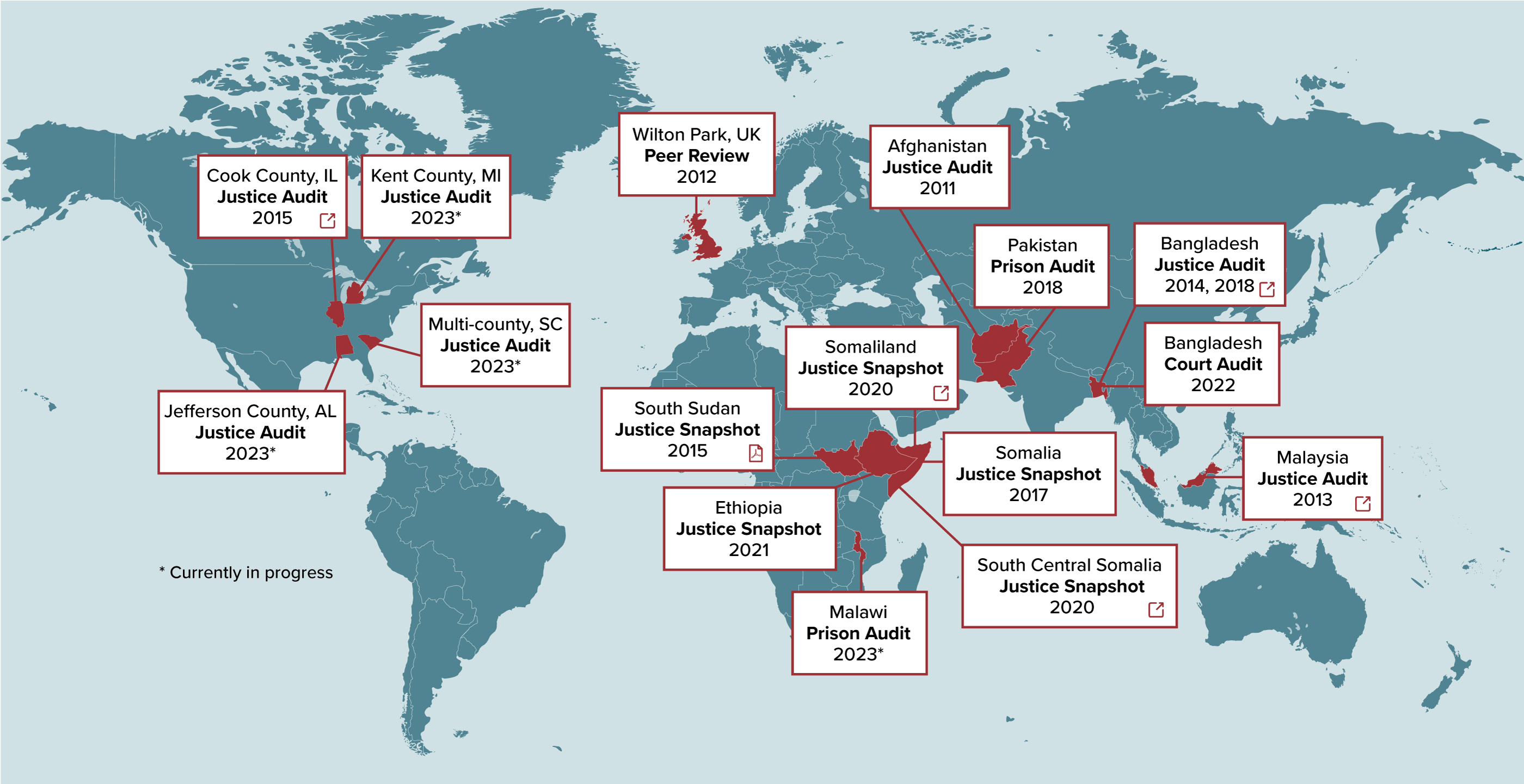THE JUSTICE AUDIT
An actionable roadmap for delivering justice and strengthening the rule of law by unlocking the potential of a country’s own data.
OPTIONS | The Justice Audit offers different strategies depending upon the needs and circumstances of a government.
The Justice Audit is an in-depth examination of how a national justice system is functioning and identifies key areas for targeted intervention and improvement.
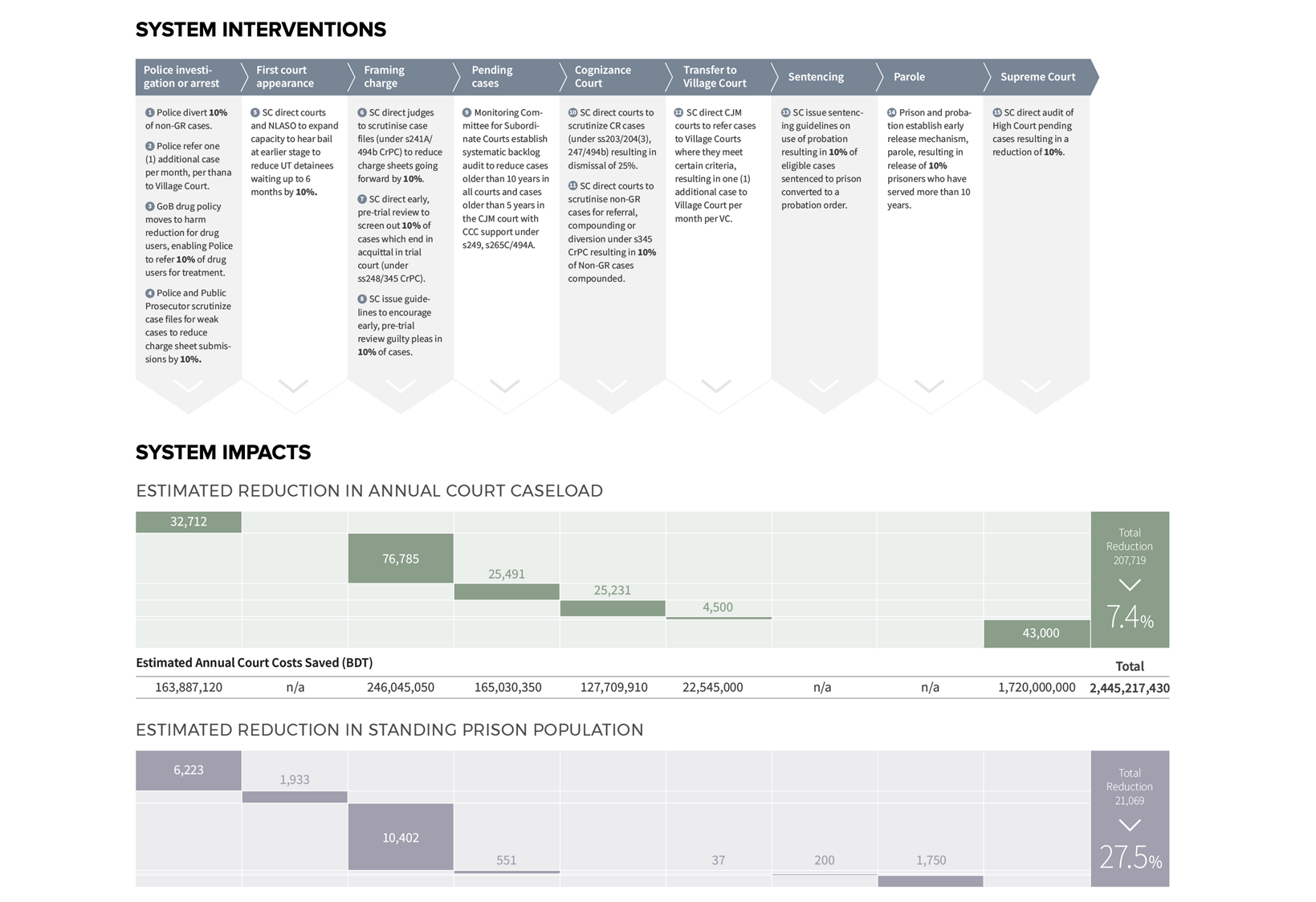
The Justice Snapshot depicts how a country’s justice system functions after a conflict or disaster and provides a matrix of actions in support of early recovery.
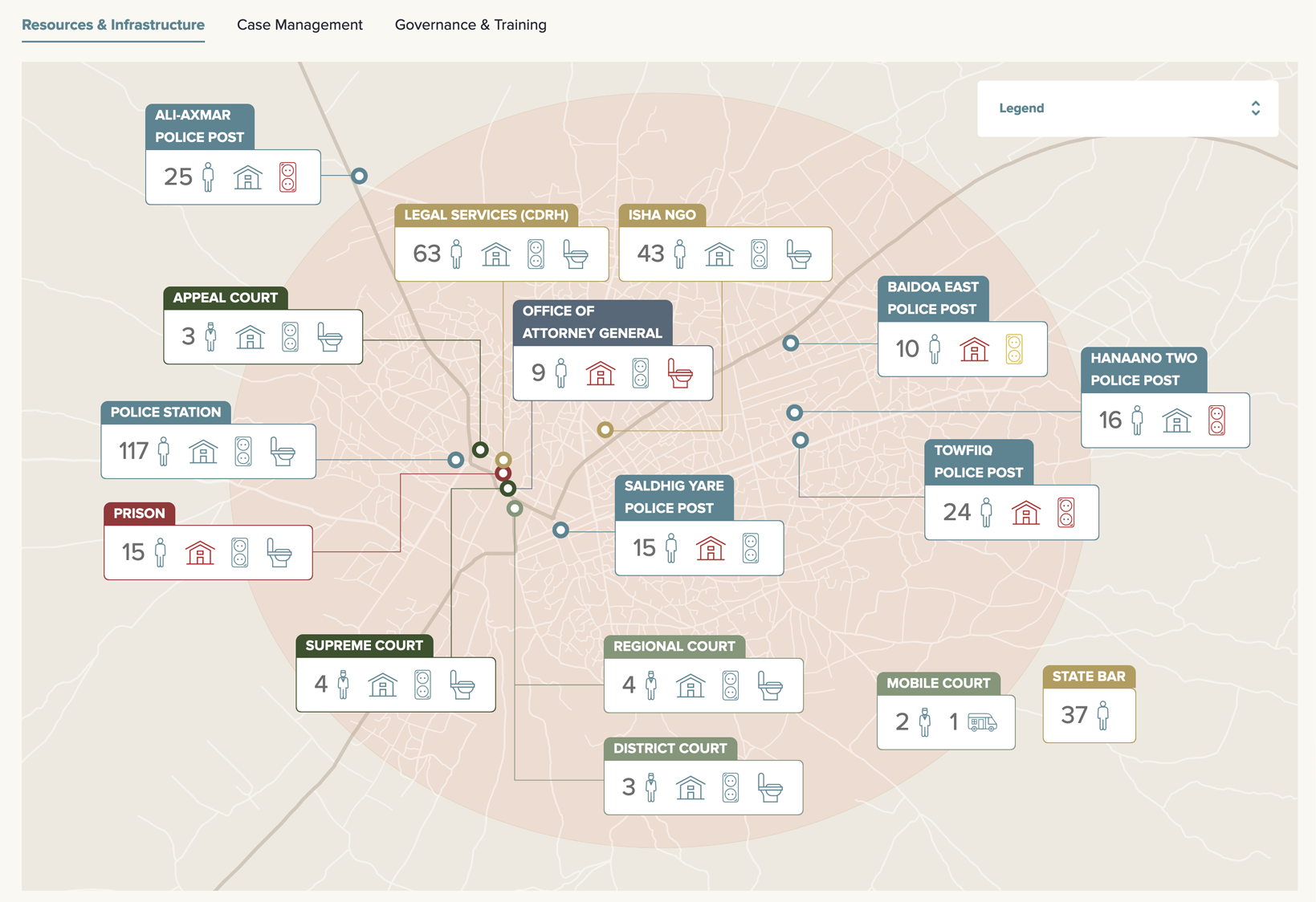
The Court Audit dives deep into case data to filter and clear backlogged cases clogging up the courts by way of targeted Case Management Orders.
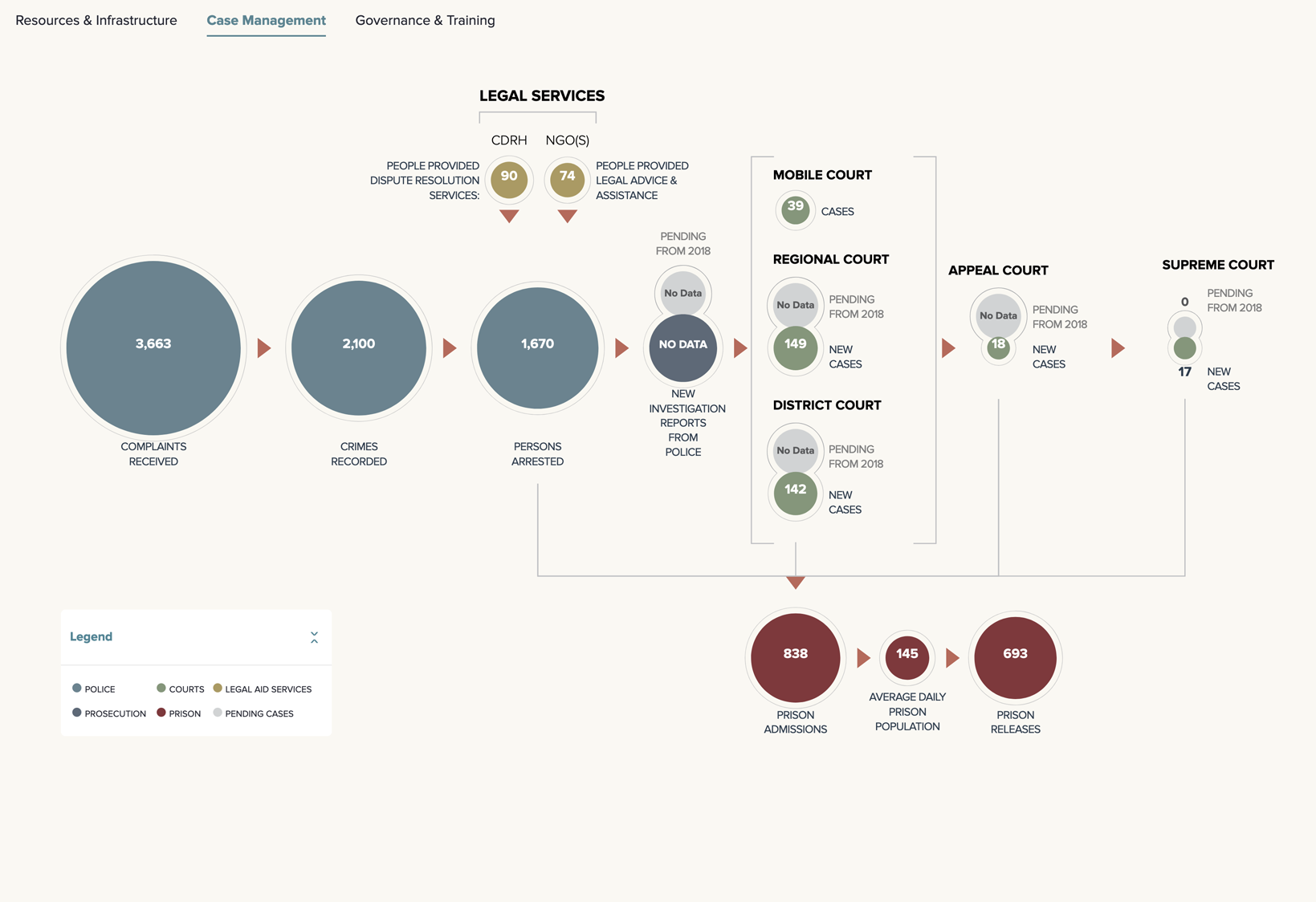
The Prison Audit tackles prison overcrowding, both in advance through early warning systems and by identifying existing prisoners eligible for release and referring them to the courts.
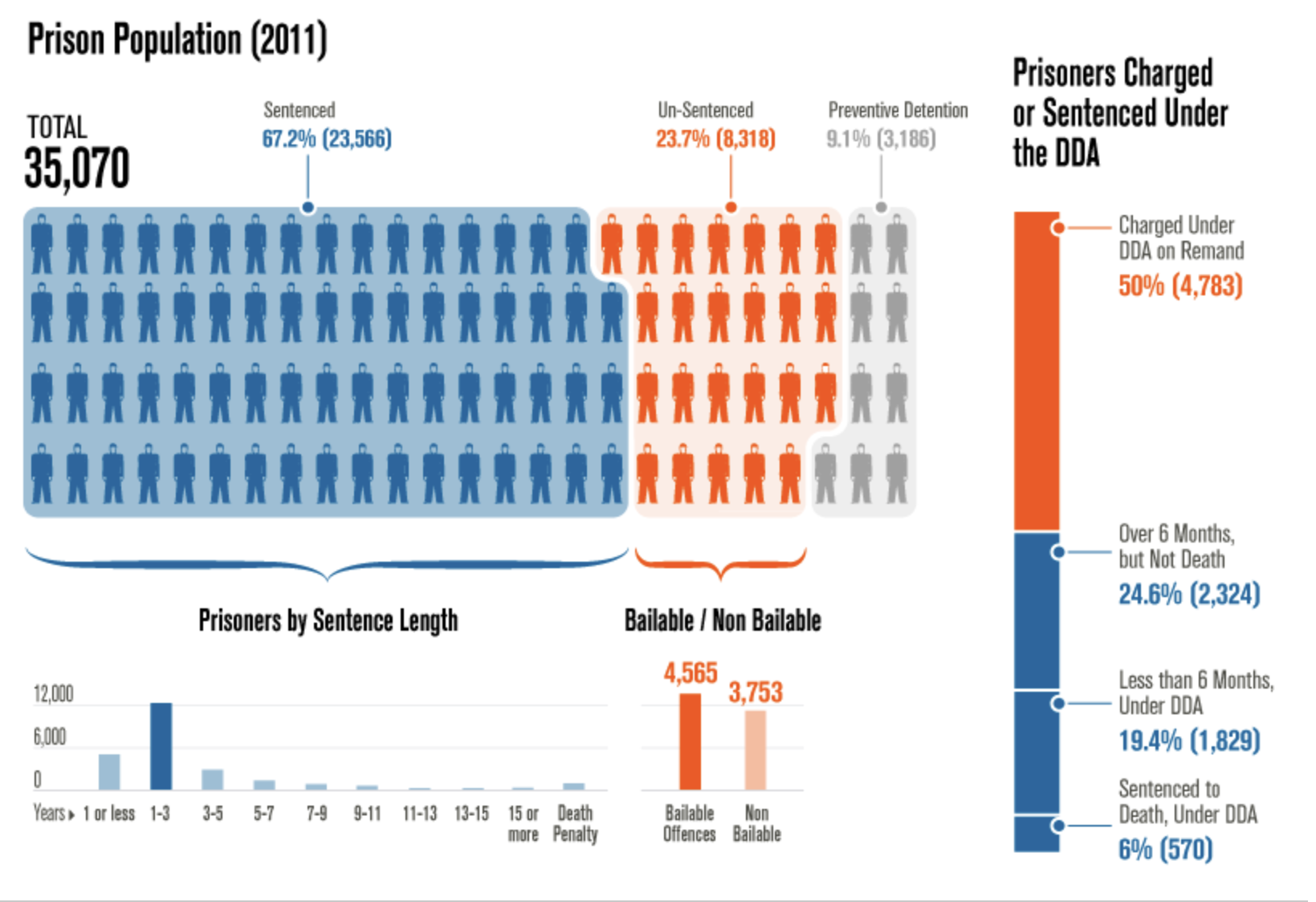
PROCESS | Whether conducting an Audit or Snapshot, The Justice Audit path follows a set of common steps:
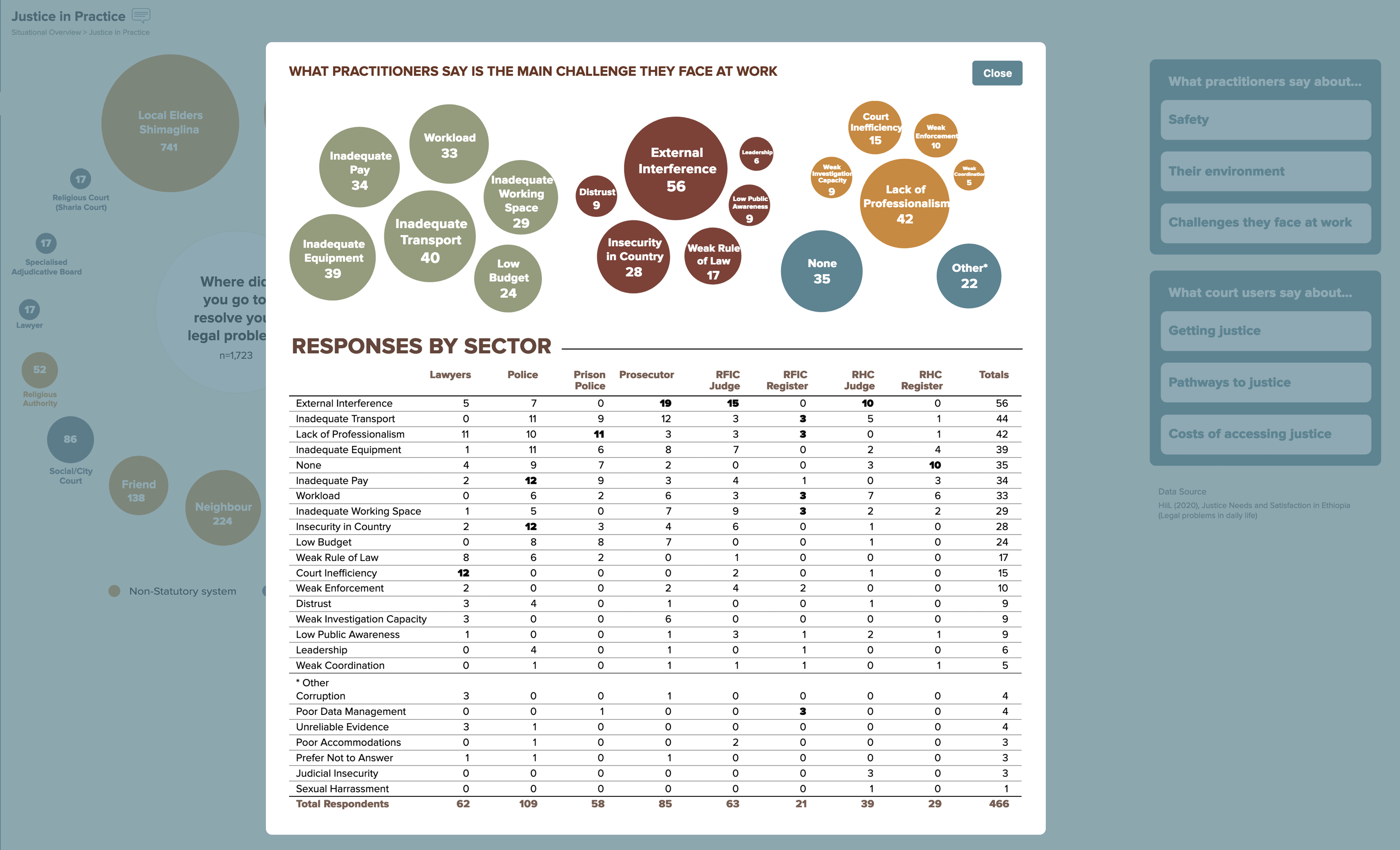
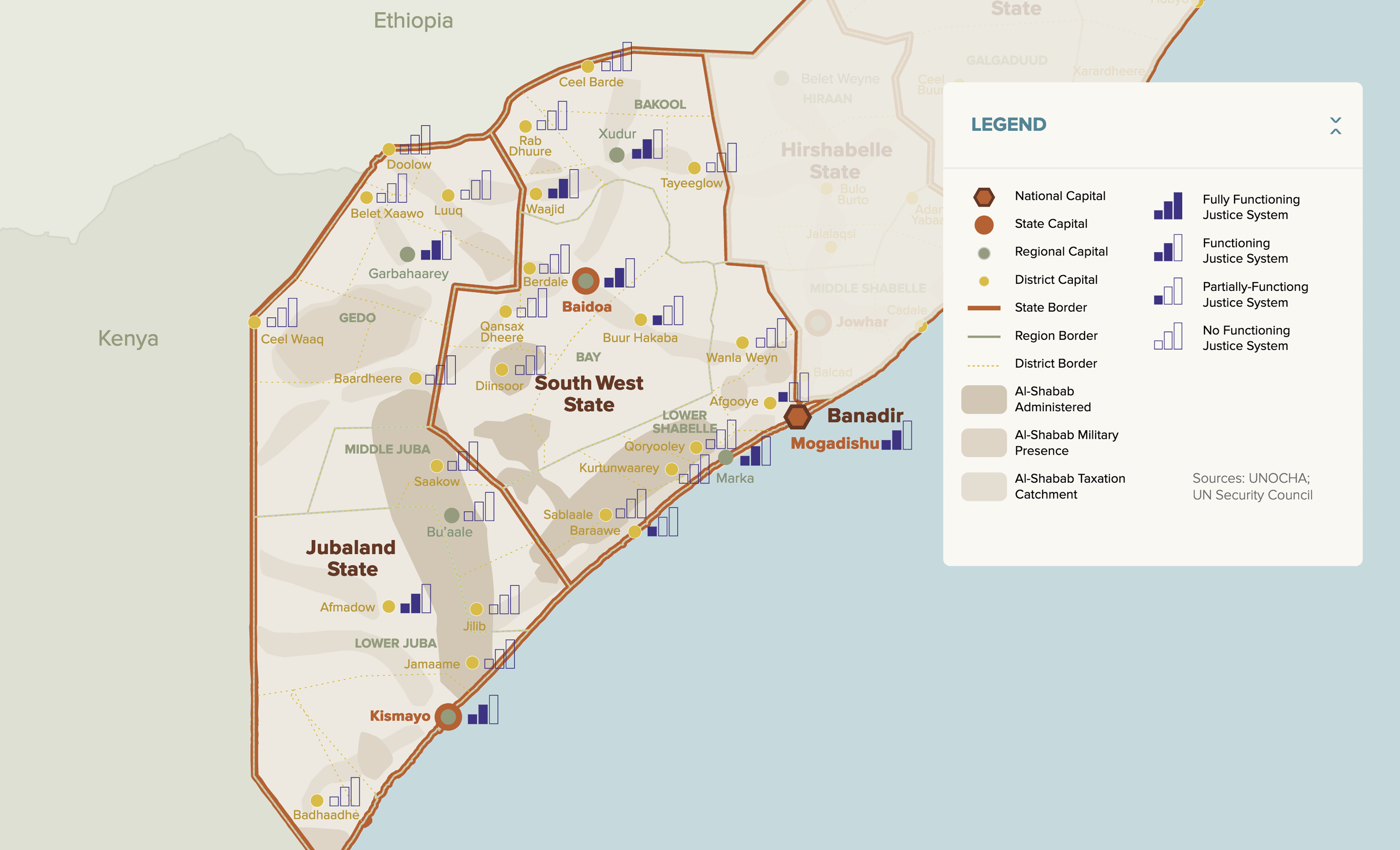
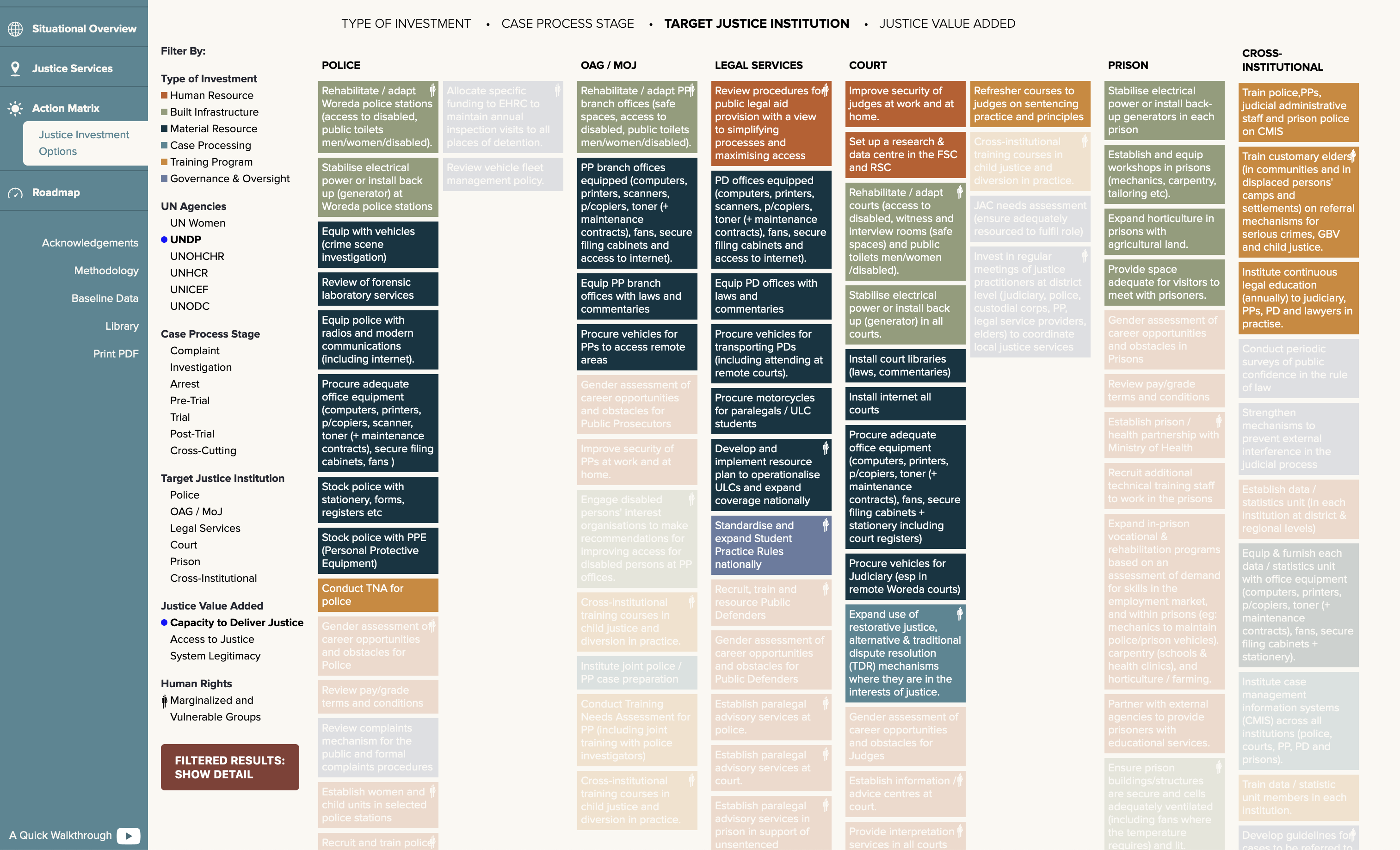
The Justice Audit is objective and apolitical. It is a diagnostic process and does not score or rank countries or institutions.
PROJECTS | Since 2011, Justice Audits have been conducted in Asia and Africa and are being adapted to local jurisdictions in North America.
IMPACT | The Justice Audit has enabled countries to identify and implement targeted reforms to improve their justice systems.
TESTIMONIALS | Praise for The Justice Audit from government and international development leaders.
“This is what I wanted because only when you have a complete, rather than partial, view do you understand what is going on . . . and I can check our progress against this baseline when we do another audit.”
Minister of Law, Justice and Parliamentary Affairs, Bangladesh
November 2018
“The South-Central Somalia Justice Snapshot is a shared public good. It informs a wider community of stakeholders and provides a strong evidence base to improve access to justice.”
DFID/FCDO project manager, Nairobi
July 2020
“[The Ethiopia Justice Snapshot] is data rich. The visualisation is insightful. Despite the constraints, you have gone to a level of detail that may be a first for Ethiopia.”
UNDP Resident Representative, Ethiopia
December 2021
The Justice Audit is the justice equivalent to a full medical check-up. It shows causes of system dysfunction and prescribes remedial action.
LEADERSHIP | The Justice Audit is led and implemented by an international team of criminal justice experts.
The Justice Audit is led by
Johann Kriegler
A Founding Justice
Constitutional Court
South Africa
Program implementation is carried out by
The Governance and Justice Group The Governance and Justice Group (GJG) was founded in 2009 as an association of individual practitioners from many countries to help develop solutions to practical problems arising in the administration of criminal justice. The GJG works with governments, intergovernmental and non-governmental organisations as well as a range of international development agencies and universities.
www.governancejustice.org
or contact Adam Stapleton at
astapleton@governancejustice.org

and advised by
Thomas F. Geraghty
Class of 1969 James B. Haddad
Professor of Law, Emeritus
Northwestern University
Pritzker School of Law
Chicago, IL, USA
Justice Mapping
Justice Mapping (JM) is a consulting network of
subject area experts and information technology
specialists who study criminal justice operations
and surrounding conditions at the local level.
JM produces data visualisation tools designed
to help philanthropies, policymakers, and
advocates reframe justice policy around places,
coordinate operations in neighbourhoods, and
reinvest in safer communities
www.justicemapping.org
or contact Eric Cadora at
ecadora@justicemapping.org

